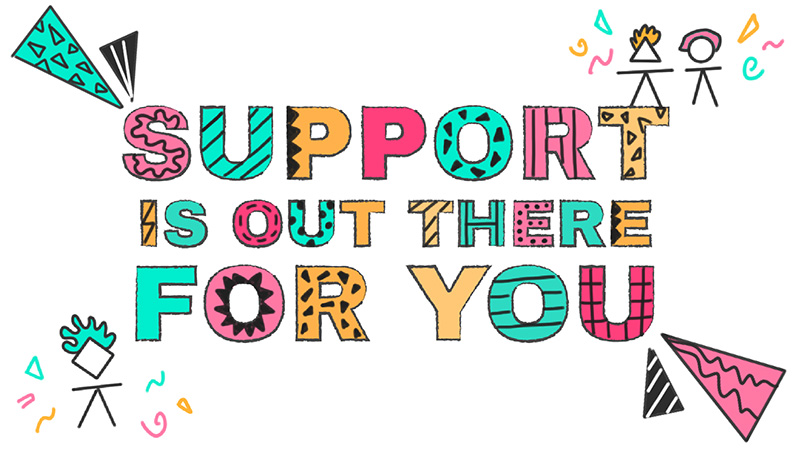
Support for racialised and minoritised communities
Finding wellbeing and mental health support that understands what you are going through and will address your specific needs.
Finding wellbeing and mental health support that understands what you are going through and will address your specific needs.

The past couple of years have been particularly tough for people from racialised and minoritised communities, with a big impact on people’s wellbeing. If you need extra support, explore a range of resources to help.
Finding support for you
Here are some sources of support and some useful ways to get support if you are finding it hard.
- Speaking to someone you can trust can be the first step to getting the help you need. This can be a family member, friend or health care professional. Taking this first step might make you more comfortable and less anxious about seeing your GP or other mental health services.
- Rethink Mental Illness has a helpful article about accessing mental health services for people from racialised and minoritised communities, alongside useful contacts and organisations.
- Watch a 60-minute NHS wellbeing webinar on BAME Wellbeing which considers the challenges people from racialised and minoritised communities face and some techniques and strategies to support wellbeing. The webinar is delivered by David Truswell, chair of the Dementia Alliance for Culture and Ethnicity, alongside Emily Gardner, Cognitive Behavioural Therapist based at East London NHS Foundation Trust.
- If someone you know needs wellbeing advice in another language, Thrive LDN has partnered with Doctors of the World to produce wellbeing guidance to support migrant communities during the pandemic. The guidance is currently available in 36 languages.
- The Ubele Initiative and the Majonzi Fund have launched the BAMEStream Bereavement Support Service. The service is committed to providing culturally competent COVID-19 bereavement support to people from black, Asian and other minority ethnic communities.
- There is also London-level mental health and wellbeing guidance and peer-peer support available for specific communities, by organisations such as Black Thrive and Taraki.
- You may also find support and advice relevant for you from Coffee Afrik CIC, Sistah Space, Ubele Initiative, and UK Black Pride. As well as Good Thinking’s resources for faith and belief communities.
- If you’re feeling anxious or stressed about financial difficulties, then explore the helpful range of resources and guidance on City Hall’s Help with the cost of living hub.
Other resources to help you
Dealing with difficult emotions can be challenging but help and support is available.
In London, there are a range of free resources, online tools, and helplines available to help you deal with the uncertainty and stay mentally healthy.
Digital resources available now
Good Thinking is a digital mental wellbeing service that has over 100 free, NHS-approved resources designed to help those dealing with anxiety, low mood, poor sleep or stress. Take the clinically validated self-assessment to get a better understand of what you’re going through, helpful resources and if necessary, relevant treatment options.
To help build resilience and maintain good mental wellbeing, Every Mind Matters has a range of resources for everyone at Including an interactive quiz, the Your Mind Plan, to get top tips and advice relevant for you.
NHS psychological treatments
If you do not require urgent support but are still concerned about your mental health, contacting your GP is a good place to start.
You can also refer yourself for free, non-urgent NHS talking therapy services, also known as Improving Access to Psychological Therapies services, which provide evidence-based treatments for depression and anxiety. In London, services are ready and open to receive self-referrals for those needing professional support.
Helplines
Or you may feel more comfortable talking to someone you don’t know by using one of the following helplines:
- If you, or anyone you know, is experiencing a mental health crisis and needs urgent assistance, advice or support, contact your local 24/7 NHS mental health helpline.
- Shout is the UK ‘s first 24/7 text messaging service for anyone in crisis. Text Shout at any time to 85258 to start a conversation.
- Samaritans’ free, 24-hour listening service on 116 123 or email jo@samaritans.org.